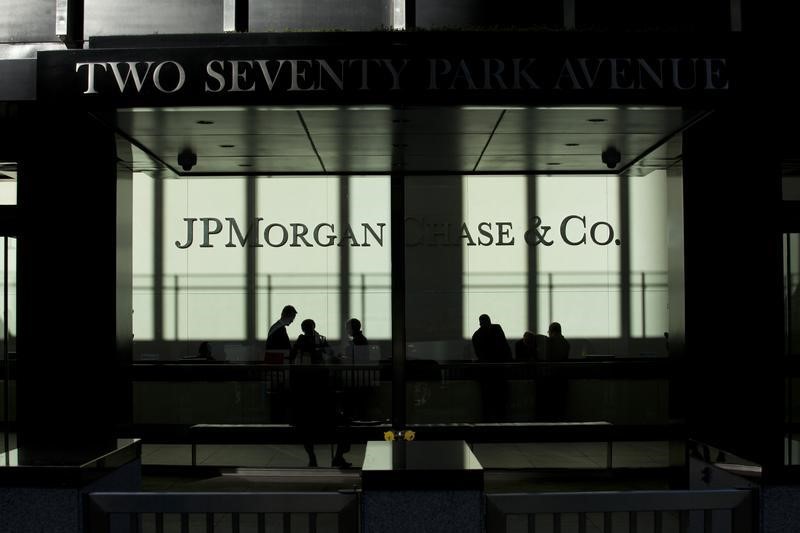This post was originally published on this site
https://i-invdn-com.investing.com/trkd-images/LYNXMPEJ420CP_L.jpg
(Reuters) -PacWest Bancorp is exploring strategic options, a source familiar with the matter said, sending the shares of the bank and several other U.S. regional lenders tumbling in after-market trading.
The dramatic fall in shares — PacWest fell nearly 60% — underscores how investors remain unconvinced about the health of regional banks despite regulators’ efforts to call an end to the banking crisis that started with the collapse of Silicon Valley Bank and Signature Bank (OTC:SBNY) in March.
The sector jitters come after a period of relative calm, and could tighten credit availability across America and hurt growth.
“There’s a major problem here. When you lose confidence in the banks, that equals a whole lot of trouble,” said Dennis Dick, a trader at Triple D Trading in Ontario, Canada. “I haven’t felt this scared since the financial crisis.”
“This is accelerating, and it’s serious,” Dick said.
A PacWest spokesperson did not immediately respond to a request for comment.
PacWest stock has lost almost 90% of its value since the regional banking crisis started on March 8. Other regional lenders, whose shares have been under pressure this week, also fell, giving up gains from earlier in the day.
Western Alliance (NYSE:WAL) Bank fell 30%. Zion Bancorporation, Comerica (NYSE:CMA) and First Horizon (NYSE:FHN) each slumped more than 7% and the SPDR S&P Regional Banking (NYSE:KRE) ETF dropped 5%.
BANKING CRISIS
The crisis in U.S. regional banks began in March, when a rapid social media-driven run on Silicon Valley Bank led to its abrupt closure and sent depositors across regional banks fleeing to the safety of the largest institutions. The crisis forced regulators to step in with emergency measures. The markets appeared to calm by late last month.
Last weekend, however, First Republic Bank (NYSE:FRC), which had been swept up in the bank run, failed and was sold to JPMorgan Chase & Co (NYSE:JPM) in a weekend auction conducted by the Federal Deposit Insurance Corp (FDIC).
Although First Republic, a California-based lender to the wealthy, became the third bank failure since March, regulators hoped its sale to JPMorgan would draw a line under the crisis.
Instead, the deal renewed fears in the market. Some investors warned that the crisis was not over, and hedge funds bet other dominos may still fall.
Some executives have said that a bank trying to raise capital during a crisis could be seen as a sign of weakness and spook investors instead of boosting confidence in the institution.
Major banks and private equity firms have balked at offering capital infusions to regional lenders without a government backstop because of concerns about booking losses on their low-yielding assets such as loans and investment portfolios.
Shares of several regional banks fell after First Republic deal, which was announced on Monday, with the KBW Regional Banking Index closing on Wednesday at its lowest level since December 2020.
The cost of insuring against further losses in regional U.S. bank stocks stood on Wednesday near a one-month high in options markets.
Earlier on Wednesday, U.S. Federal Reserve Chair Jerome Powell reiterated that the country’s banking system was resilient while delivering another 25 basis point rate hike.
STRATEGIC OPTIONS
Based in Los Angeles, PacWest has branches in California as well as Durham, North Carolina and Denver, Colorado. In its first-quarter earnings last week, its deposits had stabilized after some customers pulled their money.
On Wednesday a source said the lender was looking at options that include a potential sale or capital raise.
The bank, one of the top 100 U.S. banks, is hoping to avoid the fate of others that were taken over by U.S. regulators by proactively finding a solution to bolster its finances, the source said, asking not to be identified because the matter is confidential.
The effort comes after the bank raised $1.4 billion from investment firm Atlas (NYSE:ATCO) SP Partners in late March.
The regional bank selloff indicates investor unease over their outlook, Brown Brothers Harriman analysts wrote in a note earlier on Wednesday.
“Because that outlook is still unknown, markets did what they always do in these situations and assumed the worst,” the analysts said.

